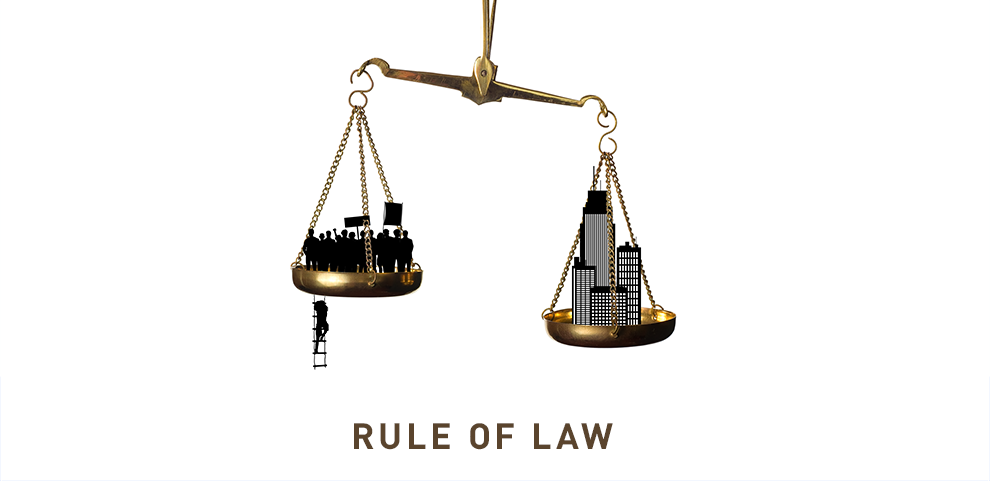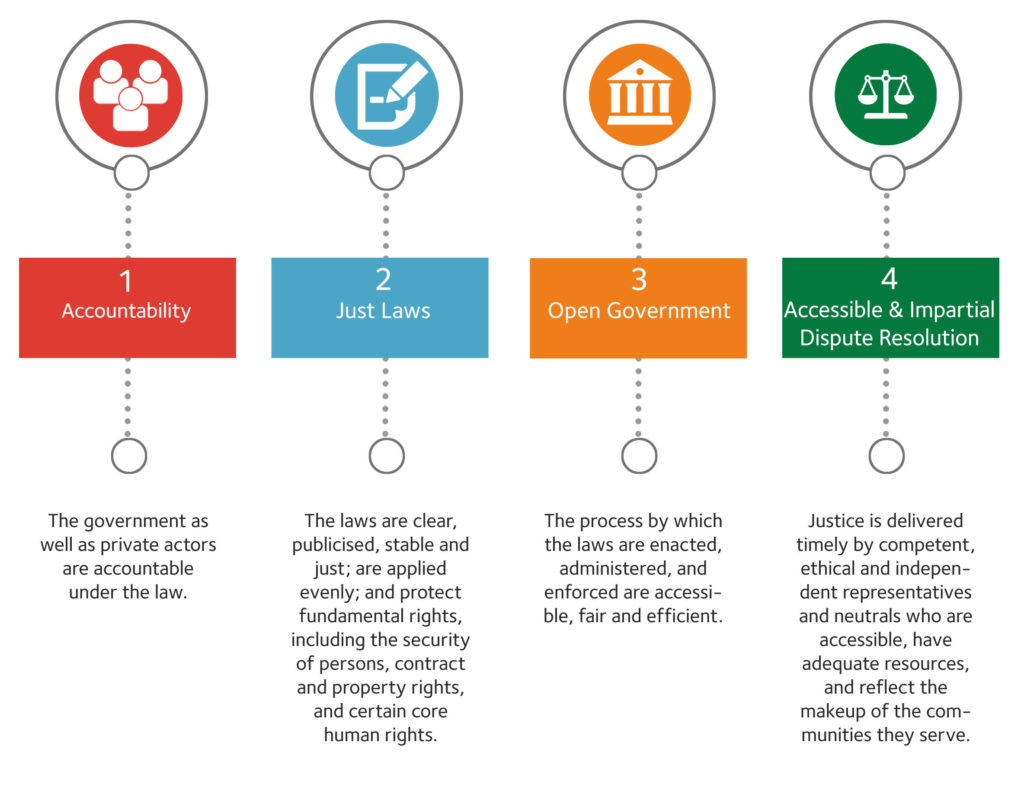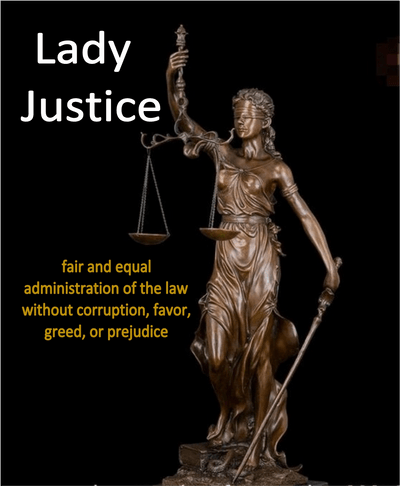Back to: CIVIC EDUCATION JSS2
Welcome to Class !!
We are eager to have you join us !!
In today’s Civic Education class, We will be discussing the Rule of Law. We hope you enjoy the class!

Rule of law
Law can be defined as a set of rules and regulations through which a society is governed to ensure peace and orderliness.
Rule of law implies the supremacy of law over every citizen in a country or nation. It emphasizes the supremacy of law, equality before the law and presence of individual right.
According to A. V. Dicey who propounded the doctrine, all leaders should abide by the law and govern the people according to the provisions of the constitution of the country. He explained further that powers should not be concentered in the hands of a few people.
Principles/Fractures of the Rule of Law
The following are the principles of the rule of law as explained by Prof. A. V. Dicey:
- Principle of Equality Before the Law: This means that all citizens should be equal before the law. Law should apply to everyone irrespective of who they are. No citizen should be above the law.
- Principle of impartiality: This means that the law should be impartial in dealing with those who break it. An offender should be deemed innocent until he is proved guilty by due process in the court. Furthermore, no suspect should be detained for more than twenty-four hours. Same punishment should be given to all offender irrespective of their status in society.
- Law is no respecter of person: This means that anyone that breaches the law will be dealt with by the principles of the law whosoever he may be. The law does not punish the poor and excuses the rich. The same punishment will apply to every citizen in the court.
- Principle of Supremacy of Law: The law is supreme over everyone, that nobody is above the law.
- Principle of Fair Hearing: Anyone arrested for an offence should be given fair hearing through the normal legal process in the court of law before condemned or sent to jail.
- Right to Appeal: When an individual is not satisfied with the judgment passes on him by a lower court, he should be able to appeal in a higher court.
- Fundamental Human Rights: Rights of individuals should not only be entrenched in the constitution but should be enforced and guaranteed.

Benefits of Rule of Law
- It Protects Citizens Against Arbitrary Rule: Rule of law ensures that citizens have access to courts to seek redress if they feel cheated or if their rights are infringed upon.
- It Guarantees the Fundamental Human Rights: The rule of law ensures that every citizen enjoys the fundamental human rights as stated in the constitution.
- It Ensures Press Freedom: The rule of law guarantees press freedom. Journalists have freedom (though not without limit) to express their views about government policies and how they are affecting the masses. They are not to be punished for pointing out areas where the government is not performing.
- It Prevents Unlawful Detention: No individual should be detained for more than twenty-four hours or more before being tried in court. Individuals have rights to sue the government or its agents for any unlawful arrest or detention.
- It Allows for Equality of all Citizens: Under the rule of law, all citizens are seen and regarded as being equal before the law. The law of the land applies to everyone. There is no sacred vow.
- It Gives Room for Appeal: Rule of law ensures that individuals appeal to a higher court if judgment given by a lower court seems not to be satisfactory.

How the Rule of Law Can Work
The rule of law can be effective and the citizens will enjoy its benefits if the following are done.
- Existence of independent judiciary.
- Un-delayed justice.
- The practice of separation of powers.
- Citizens should have the right to appeal in court.
- Democratic principles should be observed.
- A fair trial of suspects.
- Press freedom.
- The public should be enlightened on how they can seek redress if their rights are trampled upon.
We have come to the end of this class. We do hope you enjoyed the class?
Should you have any further question, feel free to ask in the comment section below and trust us to respond as soon as possible.
In our next class, we will be talking about Punishable Offences. We are very much eager to meet you there.

This class is so interesting I can’t wait for the next class
It was help full thanks so much😍😊😉🤔🤗
Thanks so much it was help full
this really helped me for real
We are glad you find the lesson helpful. Please feel free to explore and learn more.
Thanks 👍 a lot. This has been very helpful in my classes.
you are welcome 😘😘😘